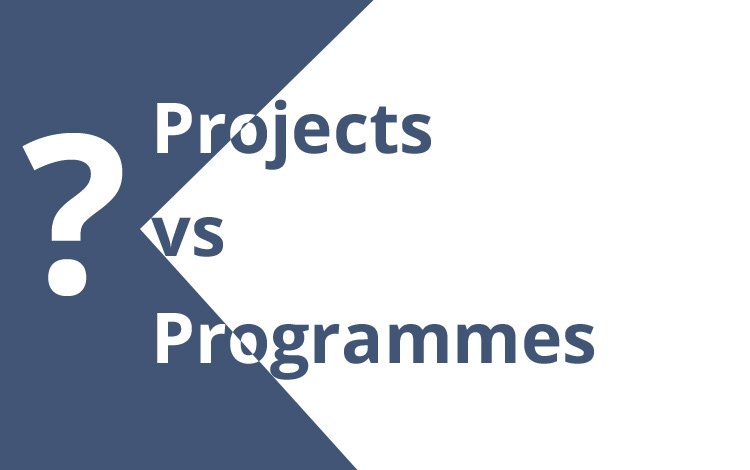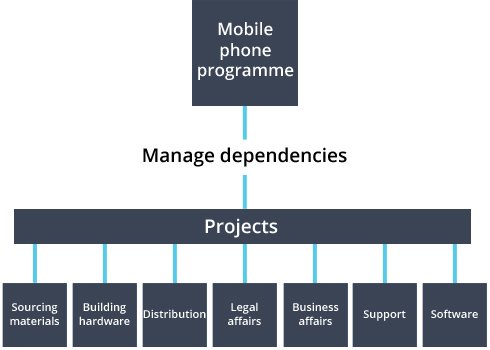January sale - up to 30% off training courses – use code: LATEJAN26UK
23 August 2019 | Updated on 30 May 2024
The difference between a project and a programme
Some people use the words ‘project’ and ‘programme’ interchangeably. Others use ‘programme’ simply to describe a large project. In reality, the two have very distinct definitions. Definition of a pro...

Some people use the words ‘project’ and ‘programme’ interchangeably. Others use ‘programme’ simply to describe a large project. In reality, the two have very distinct definitions.
Definition of a project
A project is a unique and temporary organisation, designed to deliver a tangible output. It has a fixed – generally fairly short – timeframe, and a project manager is responsible for delivering the output on time and on budget.
Definition of a programme
A programme is the coordinated management of a number of related projects and other activities. The purpose of a programme is to deliver a strategic outcome and organisational benefit. Programmes are generally long term. Because the specific deliverables may not be fully defined at the start, a programme will often have a broad, adaptable scope.
In short, a programme consists of several projects.
What are the differences between programme management vs project management?
The key differences between a project and programme are:
|
Comparison |
Project |
Programme |
|
Focus |
Content |
Context |
|
Scope |
Well-defined, limited to an output |
Broad and adjustable |
|
Timeframe |
Short term |
Long term |
|
Components |
Small tasks |
Projects |
|
Functional units |
Single |
Multiple |
|
Tasks |
Technical |
Strategic |
|
Produces |
Output |
Outcomes |
|
Deadlines |
Strict |
Flexible |
|
Designers |
Mid-level staff |
Top-level staff |
|
Success |
Product quality, timeliness, cost effectiveness, compliance and customer satisfaction |
Long-term benefits to the organisation, ROI or new capabilities |
Project vs programme example
Let’s start with an example programme – building and marketing a new mobile phone.
This wider programme would be made up of smaller projects. In this case they may include, updating the operating system or handling legal issues. The programme management would be responsible for managing the project dependencies, to ensure each project team has what it needs for successful execution.
Find out more about project dependencies.

What are the similarities between programme management and project management?
Despite the notable differences between the two, project and programme management have a lot in common, which is why a typical career path for a project manager will often see them upskill to manage programmes.
So, what are the similarities between the two? Projects and programmes:
- Are temporary
- Use business cases
- Require a team
- Are aligned to strategic objectives
- Deliver change
Project managers vs programme managers
Typically, programme managers are seen as more senior than project managers, but this isn’t necessarily the case. In some companies you might have a programme manager, who isn’t particularly senior, in charge of a small-scale programme. In another organisation you could have a very experienced and senior project manager responsible for a large and complex project.
So, what are the key differences between the two roles?
|
Comparison |
Project manager |
Programme manager |
|
Role |
Monitor and control project tasks |
Monitor and control projects |
|
Focus |
The project staff, i.e. technicians and specialists |
Managing relationships with project managers and their teams, freeing up resources and resolving conflicts |
|
Who they manage |
The project team |
Other managers |
|
Planning level |
Creates a detailed project plan for the resources, cost, timeliness and delivery |
Creates high-level plans used by the project managers both as a guide and to develop the detailed plans |
There are many other team members involved in the successful execution of a project or programme. These might include a Project Coordinator, Senior Project Manager, Programme Coordinator or Programme Director.
Learn more about these roles, as well as those of the project and programme manager, in our Project and Programme Management guide.